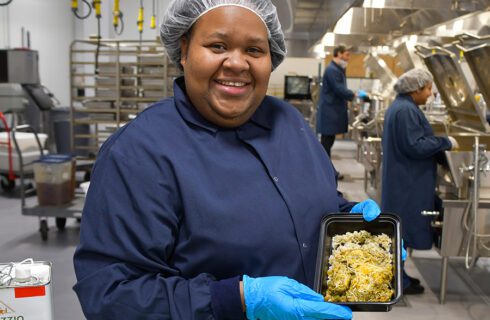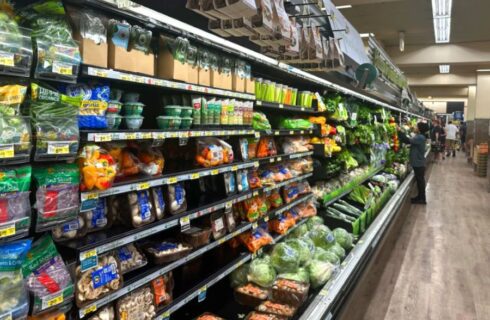New spending bill includes vital investments in child nutrition programs, but harmful cuts to SNAP will cause hardship for many households
The Greater Chicago Food Depository is pleased that the 2023 omnibus spending bill passed by Congress today includes transformational changes to programs that feed children in the summer months – when young people are at greatest risk of missing meals. At the same time, we are extremely disappointed that funding for new provisions comes at the expense of the Supplemental Nutrition Assistance Program (SNAP).
The establishment of a permanent summer EBT program will measurably reduce child hunger across the United States in the future. This is a significant victory for anti-hunger advocates. Child food insecurity is historically higher in the summer when students have reduced access to school meals. The current summer nutrition program only reaches 11.7 percent of Illinois children who receive free and reduced-price lunch during the school year. The omnibus bill includes new investments and program improvements that will remove barriers and give communities and states greater flexibility in how they reach children.
The Food Depository applauds many new provisions in the omnibus bill that will support our neighbors at risk of hunger, including:
- Summer EBT: The establishment of a permanent summer EBT program will ensure more children can access nutritious food when school is out. Starting in 2024, families will receive $40 per child per summer month. The EBT cards will provide relief for many of the same households that were eligible for the Pandemic EBT program and is a critical step toward ending child hunger.
- Non-congregate Summer Meals: Children in rural areas will now be able to take home up to 10 days of meals instead of having to consume the meals at a summer meal program site. This significantly expands access to healthy meals for more children during the summer months.
- TEFAP Increase: The Emergency Food Assistance Program will receive an additional $11 million in funding for the safe storage and distribution of federal commodities to communities. The increase brings the total to $92 million and will help food banks like the Food Depository continue our response to the increased demand, meaning more nutritious food for our neighbors in need.
- EBT Benefit Theft: Families who have been affected by EBT theft will be eligible for two months of benefits reimbursement up to two times per year for any benefits stolen between Oct. 1, 2022 and Sept. 30, 2024.
- Infant Formula: The bill includes several regulatory flexibilities that focus on addressing resiliency in the supply chain for infant formula, as well as increasing safety inspections of manufacturing facilities.
While the Food Depository is excited by these provisions, we oppose other choices made in the omnibus bill. Congress wrongly chose to fund the new investments in child nutrition programs by cutting SNAP emergency allotments. Temporary increases in SNAP benefits were implemented early in the COVID-19 pandemic to help low-income households afford groceries. Elevated need will continue in 2023 amid inflation and soaring food prices.
Vital anti-hunger programs should never be pitted against each other. To revoke emergency benefit allotments prematurely will increase food insecurity and stress a charitable food system amid a years-long hunger crisis.
In Illinois, SNAP recipients will lose at least two months of emergency benefits, starting in February 2023. The Food Depository is actively working with partners and the Illinois Department of Human Services to inform SNAP recipients of the change and connect households to additional food resources.
We urge Congress to come back to the table in 2023 and strengthen SNAP with a new Farm Bill. SNAP is our nation’s most effective tool to prevent hunger. It is in the best interest of all Americans to invest in SNAP and other critical nutrition programs. More must be done.
The Food Depository is thankful for our many partners, advocates and staff who contacted their elected officials and raised their voices in 2022. Together we achieved long-fought policy victories that will significantly reduce child food insecurity. In 2023, we encourage everyone to join us in our advocacy for solutions that will end hunger.
Share This Post



